23 Simple Ways to Live Every Day More Sustainably
These small changes make a big difference.
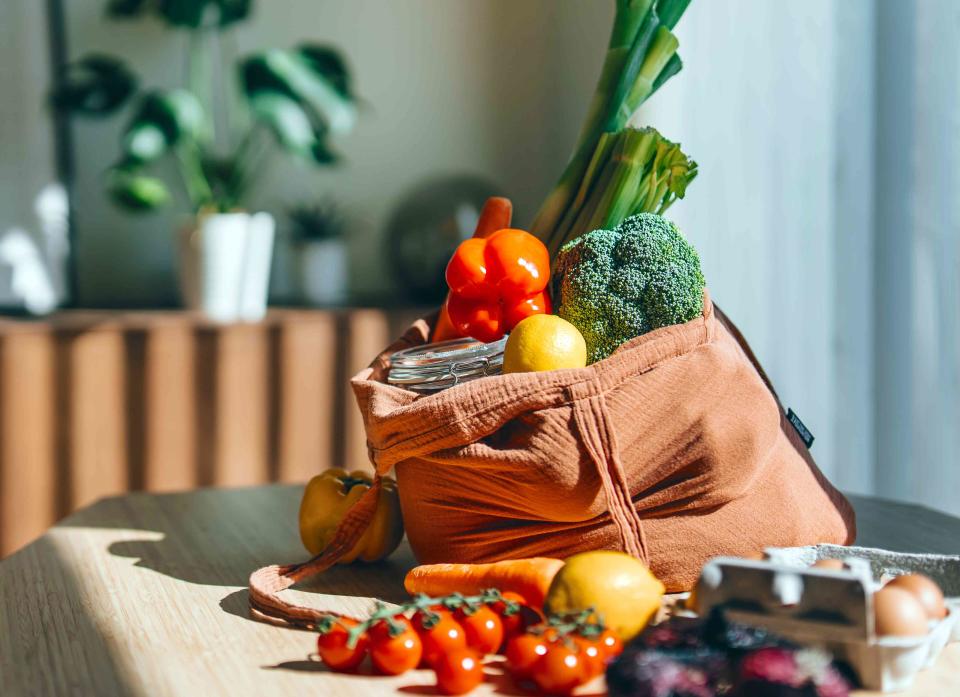
d3sign / Getty Images
Living a more sustainable lifestyle doesn't mean you need to go vegan overnight or swap your car for a bicycle. While these changes certainly make a difference, there are also small things you can do every day to be more eco-friendly. Something as simple as bringing a reusable tote to the grocery store or planting a vegetable in your garden will have a positive effect on the environment. Try any—or all!—of these easy ways to be more sustainable in your daily life.
Related: 12 Sustainable Swaps to Make If You Want a Plastic-Free Kitchen
Eat a Plant-Based Meal
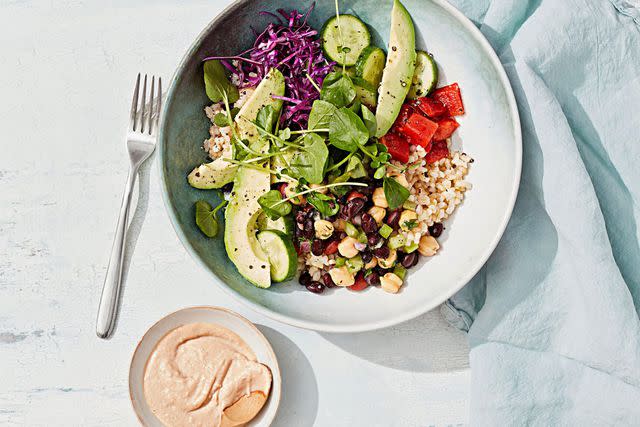
You don't have to be vegetarian or vegan to eat more sustainably. Even opting to forgo meat for one meal—breakfast, lunch, or dinner—makes a difference.
Related: 20 Plant-Based Dinner Recipes That Are Quick and Delicious
Shop Local
Local businesses typically source their goods from nearby vendors, which minimizes pollutants from transportation and the costs associated with receiving your goods from a longer distance.
Use a Reusable Straw
Whether at home or on the go, using a reusable straw instead of plastic is an easy way to make enjoying your favorite iced beverage more eco-friendly.
Line-Dry Your Laundry
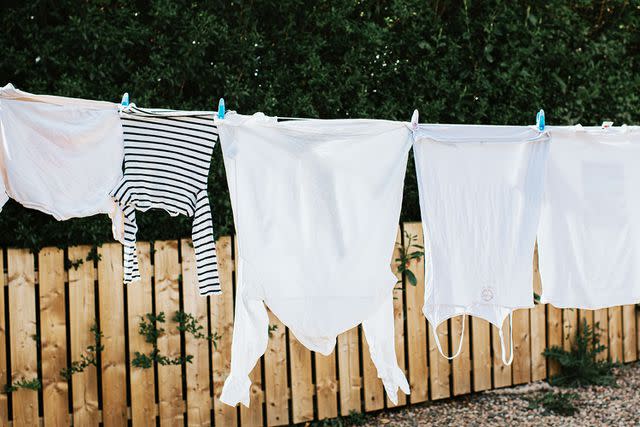
Catherine Falls Commercial / Getty Images
When you can, opt to line-dry your garments, rather than tossing them in the dryer. Not only does this reduce energy usage, but it also protects your clothes from damage from the appliance's extreme temperatures.
Shop in Bulk
Buy pasta, home essentials, snacks, and other non-perishable goods in bulk to reduce packaging waste.
Recycle
Recycling is one of the most well-known ways to live more sustainably. Doing so cuts down on the amount of waste being sent to landfills and incinerators.
Use Beeswax Wrap
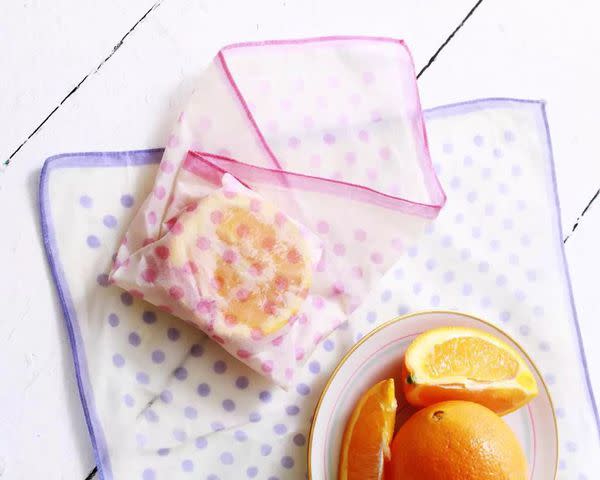
Martha Stewart
Beeswax wrap is a plastic-free way to store produce, leftovers, and more. The moldable wrap, which is made primarily from cotton and beeswax (of course), can be easily shaped around containers and food.
Related: How to Make Beeswax Wraps for Food Storage
Eat Your Leftovers
Before going out to eat or buying new groceries, eat what's in your fridge first. Finishing your leftovers may feel minor, but making it a habit can limit food waste and reduce the amount of food going to landfills.
Visit a Farmers’ Market
More than just a leisurely Sunday activity, visiting a nearby farmers' market is also an eco-friendly way to grocery shop. The locally grown food doesn't travel as far as what you'd find in a supermarket, meaning less greenhouse gas emissions.
Make a Natural Cleaner

Wera Rodsawang / Getty Images
Store-bought cleaners often contain chemicals and ingredients that are harmful for the environment, and are typically packaged in plastic. Instead, make a cleaner at home using everyday ingredients, like vinegar and water, and store it in a glass spray bottle.
Use a Bamboo Toothbrush
Next time you swap out your toothbrush, opt for one made from bamboo instead. The handles are made from bamboo, which is 100 percent biodegradable, unlike plastic iterations.
Related: How to Make a DIY Carpet Cleaner and Stain Remover Using Simple Household Ingredients
Use a Reusable Coffee Cup
If you can't resist your morning trip to the coffee shop, bring a reusable cup with you instead of opting for the usual disposable to-go cups.
Use an Induction Cooker
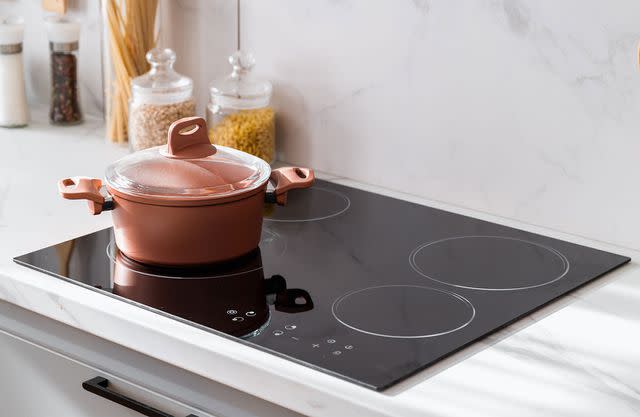
brizmaker / Getty Images
Use an induction cooker in lieu of a gas or electric stove. This type of cooktop uses electromagnetic energy, which is powerful but also more energy efficient, since heat isn't lost in the transferring process.
Check Out a Library Book
For avid readers, few things are more exciting than selecting your next book. Rather than buying one to read and put on your shelf, consider checking one out from your local library where it can be reused for years to come.
Compost
Limit food waste by composting scraps, like eggshells, coffee grinds, excess produce, and more. Once they break down, you can use the compost in your garden as food for plants.
Related: 10 Composting Tips That Will Keep Your Soil Healthy, According to Martha’s Head Gardener
Carry a Reusable Tote
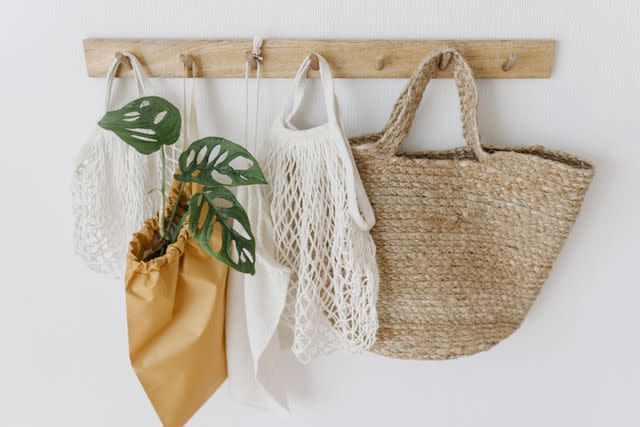
Westend61 / Getty Images
Keep a reusable tote on hand to cut down on waste from single-use bags. You can use it for everything from grocery shopping trips to impromptu purchases. Plus, there are many stylish totes on the market to choose from, so it can double as an accessory.
Donate Unused Items
Give your unused items, from clothes that don't fit anymore to toys your kids have outgrown, a second life by bringing them to a nearby donation center.
Related: The 9 Best Places to Donate Clothes
Bike, Carpool, or Take Public Transportation
One of the most effective ways to reduce your carbon footprint is during your daily commute. Leaving your car at home, even just one day a week, can make a difference. Opt for public transportation when possible, or carpool with someone local. When traveling a short distance, forgo your car and walk or ride your bike instead.
Plant a Seed
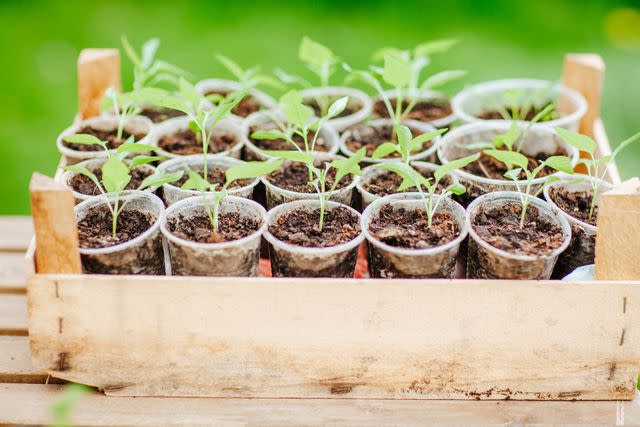
Natasha Lazaridi / Getty Images
Growing your own fruits, vegetables, and herbs reduces pesticide and fertilizer use, and cuts down food waste as you only need to plant what you'll actually eat. Plus, it's a great way to add color and beauty to your garden—a win, win!
Related: Our Complete Guide to Starting a Vegetable Garden, From Planting to Harvesting
Drink From a Reusable Water Bottle
Swap out your daily plastic water bottle for a reusable one to cut down on the amount of plastic going into landfills.
Shop Secondhand
Shopping secondhand is a sustainable, rewarding, and affordable way to buy goods that may otherwise end up in the landfill. Before buying new, check local thrift stores, estate sales, and antique malls for the items you're in the market for, be it clothes, home décor, small appliances, or something else.
Related: 15 Things You Should Always Buy at the Thrift Store, According to Design Insiders
Repair, Don't Replace
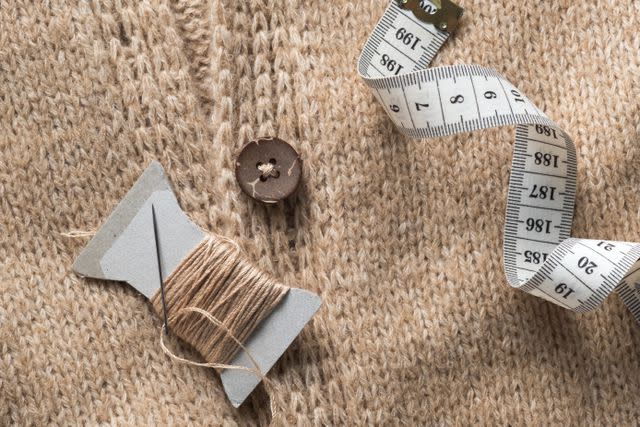
Aleksandr Zubkov / Getty Images
In a time when buying new is so accessible, it can be easy to overlook how quickly something can be repaired rather than replaced. From a hole in your sweater to a lamp that won't turn on, try fixing your possessions before tossing them in the trash.
Related: Classic Martha Ideas
Take a Short Shower
Reduce water waste and conserve energy by taking a shorter shower. One way to do this is by multi-tasking—for example, rather than standing around while the conditioner soaks into your hair, use this time to apply body wash or shave.
Read the original article on Martha Stewart.

